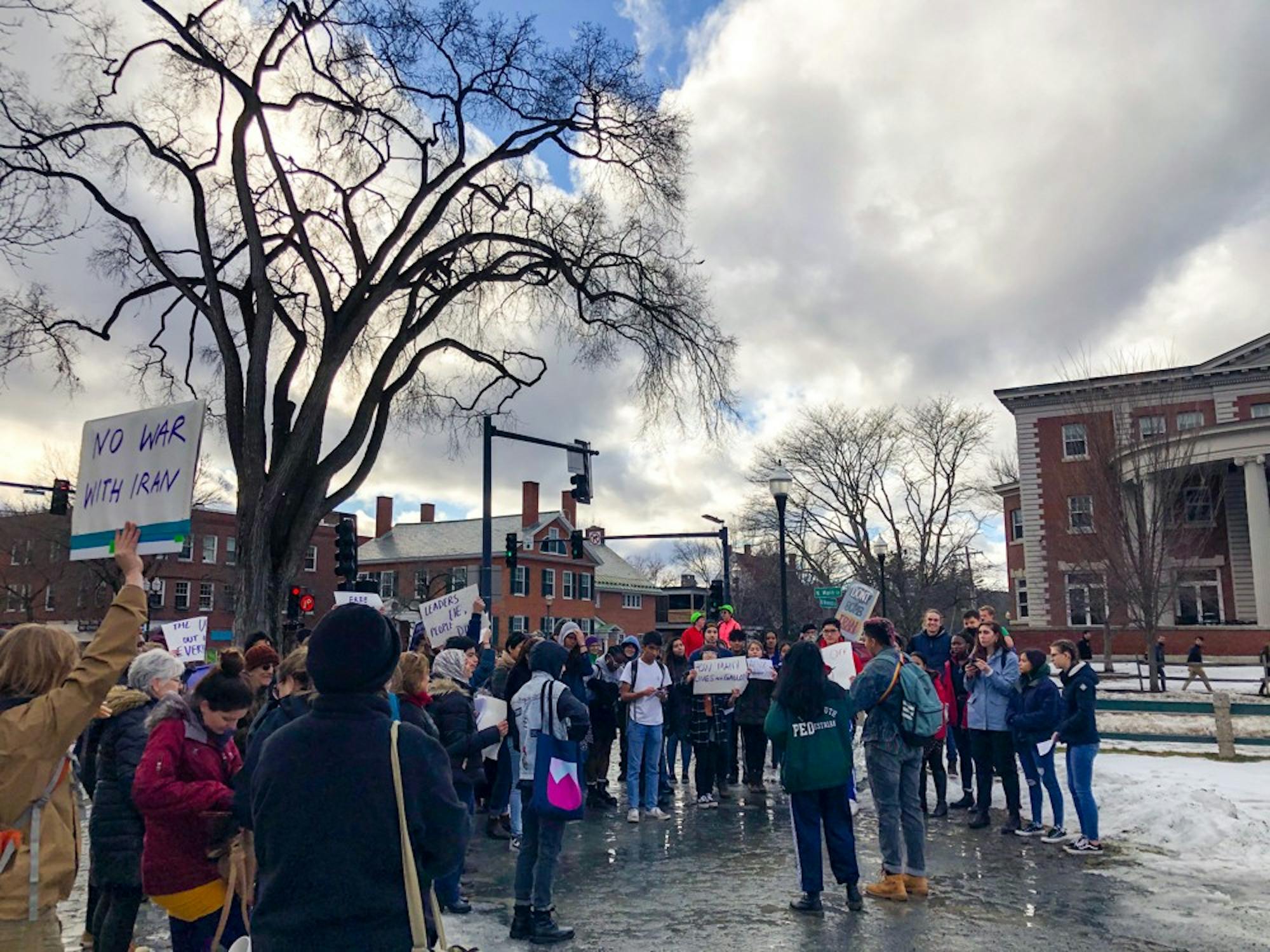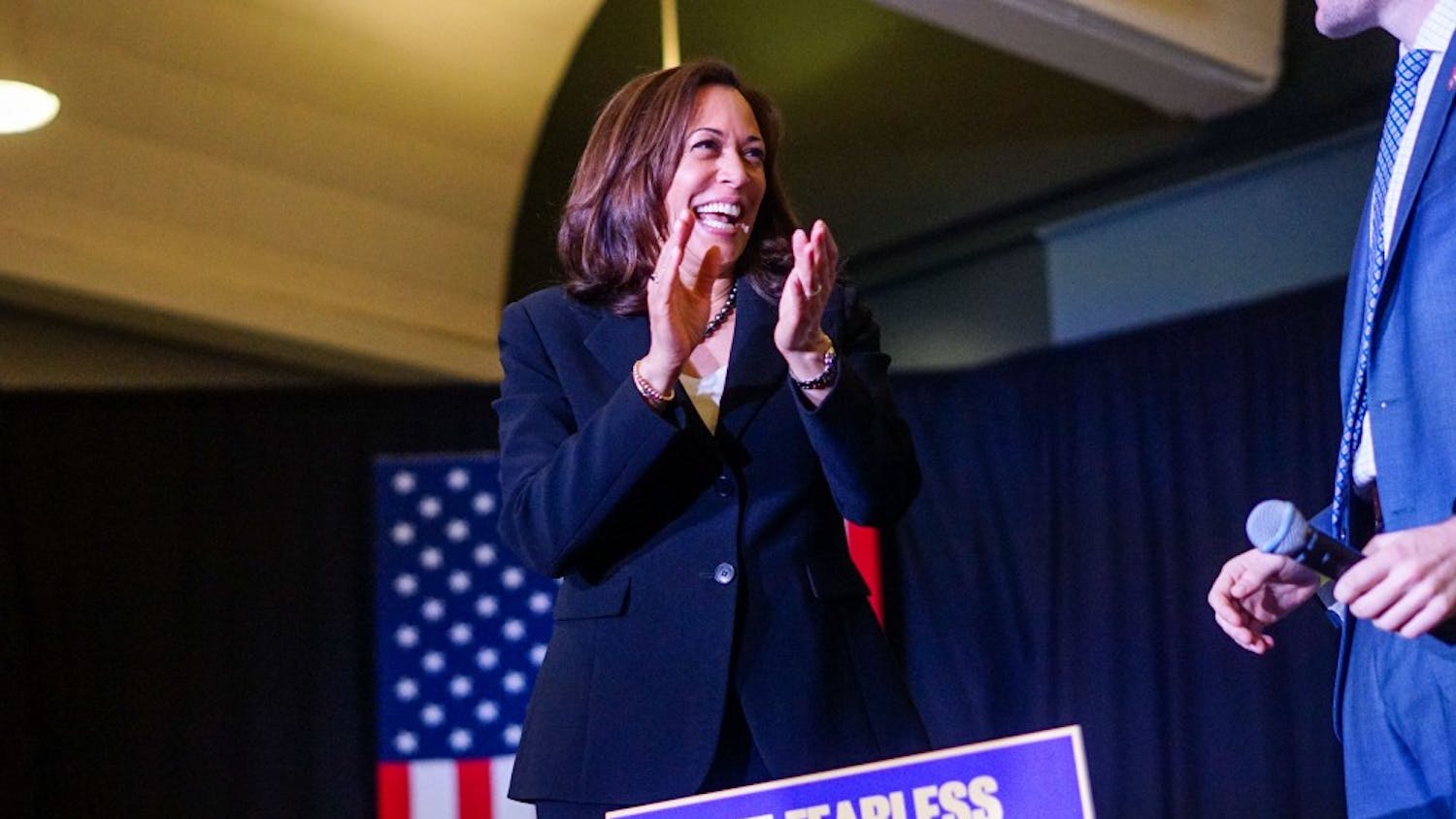Around 50 people gathered on the Green on Sunday afternoon to protest recent U.S. policies and actions toward Iran. Organized by activists in the Upper Valley, the event gained attention on social media and was attended by both Upper Valley residents and Dartmouth students.
Situated on the southwest corner of the Green, protesters listened to a variety of speeches over a megaphone, said anti-war chants in unison and sang protest songs. Protesters also held signs with anti-war messaging such as “No more endless wars,” “War is not the answer,” “Leaders lie, people die” and “How many lives per gallon.”
The protest comes on the heels of actions by the United States and Iran that have escalated the risk of armed conflict in the region. On Jan. 3, the United States carried out a military strike which killed Iranian general Qassem Soleimani. Since the strike, Iran retaliated with missile strikes against two U.S. military bases in Iraq and accidentally took down a commercial airliner, sparking protests against in the capital city of Tehran.
A lineup of speakers comprised of both Dartmouth students and Upper Valley residents spoke about the danger of war with Iran, the United States’ history with Iran, as well as other topics such as anti-Semitism.
One Upper Valley organizer gave the crowd two specific instructions: to organize to build power and to educate to build leaders.
Speakers at the protest also condemned American action on climate change. In addition to writing a short anti-war song specifically for the event, Laura Simon, a local climate activist and a member of the Upper Valley Clean Air Committee, spoke to the effects of war on the climate.
“What role do endless wars play in the climate crisis?” Simon asked the crowd. “To say that the U.S. military is the largest user of petroleum, while also using some of the most toxic materials, is just scratching the surface. Militarism is the most oil-exhaustive activity on the planet, and becoming more so with faster, bigger planes and tanks that guzzle more fuel, and increasingly [cause] more intense wars.”
Simon also criticized the United States’ reliance on oil and fossil fuels, taking the opportunity to speak out against the College’s proposal to build a biomass heat plant instead of investing in solar power.
At the end of the event, organizers urged attendees to follow the protest’s call to action. They suggested that attendees contact their congressional representatives to demand that Congress not provide additional funding to the Department of Defense and the Department of Homeland Security. The protest ended officially with a final song calling for peace.
“I came out [to the protest] because I’ve been seeing a lot about the war on social media ... it’s really important to gain knowledge about it, so it kind of attracted me to learn more and come here,” said Alicia Massey ’22. “I don’t like war, so I was like, ‘I want to come out.’”
Asma Elhuni, lead organizer at the United Valley Interfaith Project and one of the organizers of the protest, praised the event.
“Organizers wanted to plan this protest to send a strong message to the community that we do not support war, and we need a new path forward for our country that is not supporting this war machine that has fueled the U.S. country since the beginning of its founding,” Elhuni said. “We want something new.”

Lauren ('23) is news executive editor for The Dartmouth. She is from Bethesda, Maryland, and plans to major in government and minor in public policy.



